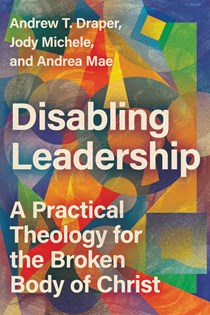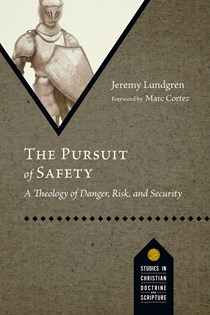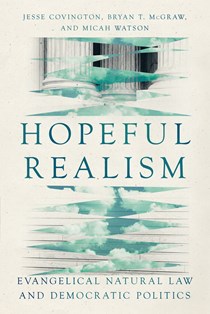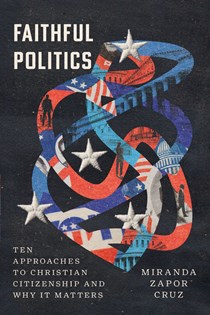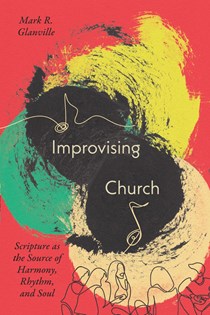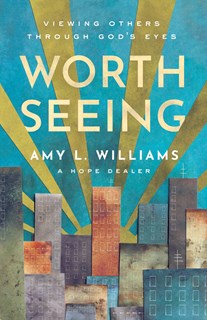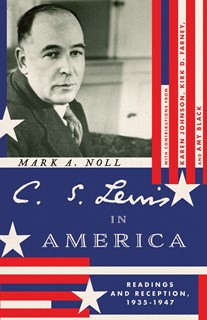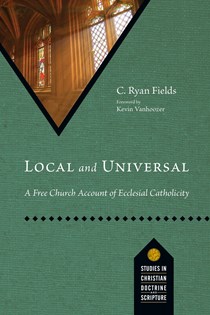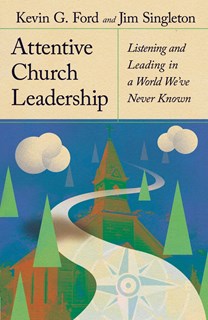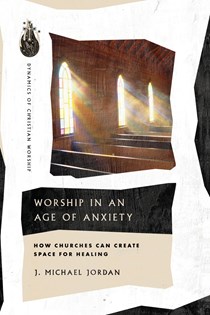Church & Society
-
Disabling Leadership
A Practical Theology for the Broken Body of Christ
by Andrew T. Draper, Jody Michele, and Andrea Mae
People with disabilities are often excluded from full participation in church communities. Accessibility is a key component of the biblical ministry of reconciliation—but it's not enough. To truly work toward reconciliation, churches must both consider the theological implications of disability and also become places where people with disabilities lead.
Disabling ...
-
The Pursuit of Safety
A Theology of Danger, Risk, and Security
Studies in Christian Doctrine and Scripture
by Jeremy Lundgren
What does it mean to pursue safety in the Christian life?
Safety is among the most important concerns of human life: we pursue it instinctively and go to great lengths to avoid danger or harm. However, the category of safety has received surprisingly little focused theological reflection. Important questions for the church have gone unanswered: How do secular understandings ...
-
Hopeful Realism
Evangelical Natural Law and Democratic Politics
by Jesse Covington, Bryan T. McGraw, and Micah Watson
A Natural Law Framework for Evangelicals Today
During a time when political conversations are marked by deep polarization and difficult decision-making, what resources do evangelicals have to think critical and theologically about public life?
For political theorists Bryan T. McGraw, Jesse Covington, and Micah Watson, a crucial resource is to be found in natural law, ...
-
Faithful Politics
Ten Approaches to Christian Citizenship and Why It Matters
by Miranda Zapor Cruz
Christians who seek to relate their faith to politics have always encountered tensions. Instead of easy answers and simple checklists, we need tools to help us thoughtfully navigate the complexities of Christian faithfulness in an increasingly diverse and polarized society.
In this book, Miranda Zapor Cruz guides readers in forming a vision of citizenship that brings Christian ...
-
Improvising Church
Scripture as the Source of Harmony, Rhythm, and Soul
by Mark Glanville
Plenty of books diagnose our post-Christian malaise. Here's a dynamic solution.
The post-Christian cultural turn is creating the conditions for a crisis of confidence in the church and in pastoral ministry. While such changes can be disruptive and disconcerting, our new cultural reality makes the present moment a uniquely exciting time to reimagine churches that bear witness ...
-
Worth Seeing
Viewing Others Through God's Eyes
by Amy L. Williams
"We are in the business of seeing others, seeing them the way God sees them, and letting them know they have value."
Amy L. Williams has spent three decades doing ministry with youth in gangs and prisons. While most of society sees high-risk youth through lenses of fear or disregard, she has come to see them through God's eyes as having tremendous value and potential. Worth ...
-
C. S. Lewis in America
Readings and Reception, 1935–1947
Hansen Lectureship Series
by Mark A. Noll
Contributions by Karen J. Johnson, Kirk D. Farney, and Amy E. BlackPerhaps no other literary figure has transformed the American religious landscape in recent history as much as C. S. Lewis. Even before the international publication and incredible success of his fictional works such as The Chronicles of Narnia or apologetic works like Mere Christianity, Lewis was already being read "across the pond" in America. But who exactly ...
-
Local and Universal
A Free Church Account of Ecclesial Catholicity
Studies in Christian Doctrine and Scripture
by C. Ryan Fields
In the words of the creeds, the church is the one, holy, catholic, and apostolic body of Christ.
Of those features, perhaps none is as misunderstood as the church's catholicity (that is, its universality)—because while the church is universal, it is also radically local, connected to a particular community or even found on a specific street corner. How might we reclaim the ...
-
Attentive Church Leadership
Listening and Leading in a World We've Never Known
by Kevin G.Ford and Jim Singleton
Foreword by Ed StetzerThe world has changed. The changes around us present daunting challenges to the church, and we minister in places we have never been in before. But there are no one-size-fits-all solutions because every church needs to attend to its specific situation and calling. We need to listen for not only what to do but also what not to do. In a world screaming in a thousand directions for ...
-
Worship in an Age of Anxiety
How Churches Can Create Space for Healing
Dynamics of Christian Worship
by J. Michael Jordan
The history of the theology of worship is riddled with examples of clergy and worship leaders who have sought to manipulate their parishioners' anxiety in order to spur repentance and turn people toward God. Even if such ends may be desirable—at what cost?
In Worship in an Age of Anxiety, Jordan challenges this utilitarian approach, offering a critical assessment ...


